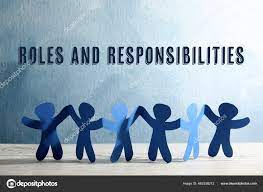Psychotherapists play a pivotal role in fostering mental wellness by employing various therapeutic approaches and techniques to help individuals navigate their emotional, psychological, and behavioral challenges. Their expertise spans a wide spectrum, aiding people dealing with diverse issues such as anxiety, depression, trauma, relationship conflicts, and more.
Role and Responsibilities:
Psychotherapists are trained professionals who utilize evidence-based methods to assist individuals, couples, families, or groups in understanding their thoughts, feelings, and behaviors. Their primary responsibilities include:

Assessment: Psychotherapists conduct thorough assessments to comprehend a client's concerns, history, and circumstances. This helps in formulating tailored treatment plans.
Therapeutic Techniques: They employ various therapeutic modalities such as cognitive-behavioral therapy (CBT), psychodynamic therapy, mindfulness-based therapies, and more, based on the client's needs.
Emotional Support: Creating a safe, non-judgmental space, therapists help clients explore and process emotions, aiding in their understanding and management.
Goal Setting and Monitoring: Collaboratively, they establish therapeutic goals and regularly evaluate progress to ensure effectiveness.
Education and Guidance: Providing psychoeducation about mental health conditions, coping strategies, and communication skills empowers clients to manage their challenges better.
Advocacy and Referral: They may advocate for clients' needs within the healthcare system and refer them to other professionals or resources when necessary.
Diversity in Practice:
Psychotherapists cater to diverse populations, considering cultural, social, and individual differences. They understand the impact of cultural backgrounds on mental health and adapt their approaches accordingly, fostering inclusivity and sensitivity.

Specializations:
Psychotherapists often specialize in areas like:
Trauma Therapy: Addressing trauma-related issues through specific therapeutic techniques like EMDR (Eye Movement Desensitization and Reprocessing) or trauma-focused CBT.
Child and Adolescent Therapy: Tailoring interventions suitable for children and teenagers, considering their developmental stages and unique needs.
Couples or Family Therapy: Assisting in resolving conflicts and improving communication within relationships.
Continuous Learning and Ethical Practice:
They engage in ongoing professional development, staying updated with advancements in the field. Adherence to ethical guidelines and confidentiality is fundamental in their practice.
Conclusion:
Psychotherapists act as guides, empowering individuals to enhance their mental wellness, fostering resilience, and facilitating personal growth. Through their expertise, empathy, and dedication, they contribute significantly to the holistic well-being of individuals and communities.
Psychotherapists act as the advisers for the perplexing scenes of the human brain, offering backing, direction, and recuperating to people exploring the frequently wild waters of psychological well-being. These experts are proficient at grasping the intricacies of the human mind, utilizing different remedial modalities customized to the exceptional requirements of their clients. At the core of their training lies the principal faith in the force of discussion.
Through an empathetic and non-critical discourse, psychotherapists cultivate a place of refuge for people to investigate their contemplations, feelings, and encounters. This investigation frequently unwinds the tangled strings of trouble, taking into account significant bits of knowledge and self-awareness. The job of a psychotherapist rises above the customary picture of an uninvolved audience; they effectively take part in the restorative cycle, utilizing proof based methods got from brain science, neuroscience, and advising hypotheses. From mental conduct treatment (CBT) to psychodynamic approaches, every strategy offers an unmistakable focal point through which people can address and beat their emotional well-being difficulties.
One of the critical qualities of psychotherapists lies in their capacity to shape a veritable restorative union with their clients. This bond, based on trust and compassion, shapes the establishment for extraordinary change. Inside this steady climate, people feel engaged to defy their apprehensions, defeat injury, oversee pressure, and foster survival methods to explore life's intricacies. Past tending to explicit psychological wellness concerns, psychotherapists assume a vital part in cultivating flexibility and upgrading in general prosperity. They give people the tools they need to become more mindful, communicate better, build stronger relationships, and gain a better understanding of themselves.
The excursion to turning into a psychotherapist :
is thorough and diverse. It normally includes acquiring postgraduate educations in brain science, advising, or social work, trailed by managed clinical experience and licensure. Nonetheless, the learning doesn't stop with formal training; progressing proficient turn of events and constant learning are indispensable to keeping up to date with arising remedial methodologies and advancing exploration. Also, psychotherapists comply to severe moral rules and classification principles, guaranteeing most extreme protection and regard for their clients' independence.
This obligation to moral practice highlights the significant obligation they hold in supporting people through their most weak minutes. The effect of psychotherapy reaches out a long ways past the treatment room. Its effectiveness in reducing the societal burden of psychological distress, improving overall quality of life, and alleviating symptoms of various mental health conditions is consistently demonstrated by research. By tending to emotional well-being proactively, psychotherapists add to building better networks and cultivating a more empathetic culture.
In our current reality where the shame encompassing emotional well-being actually waits, psychotherapists act as encouraging signs, pushing for more prominent mindfulness and understanding. Their devotion to destigmatizing psychological wellness provokes urges more people to look for help unafraid of judgment, at last preparing for a more comprehensive and sympathetic culture. Taking everything into account, psychotherapists are the empathetic pilots directing people through the maze of their internal universes. Their aptitude, compassion, and obligation to mending engage people to set out on groundbreaking excursions toward mental wellbeing. As mainstays of help and problem solvers, psychotherapists assume a vital part in cultivating flexibility, advancing self-disclosure, and sustaining all encompassing prosperity in a consistently developing world.



You must be logged in to post a comment.